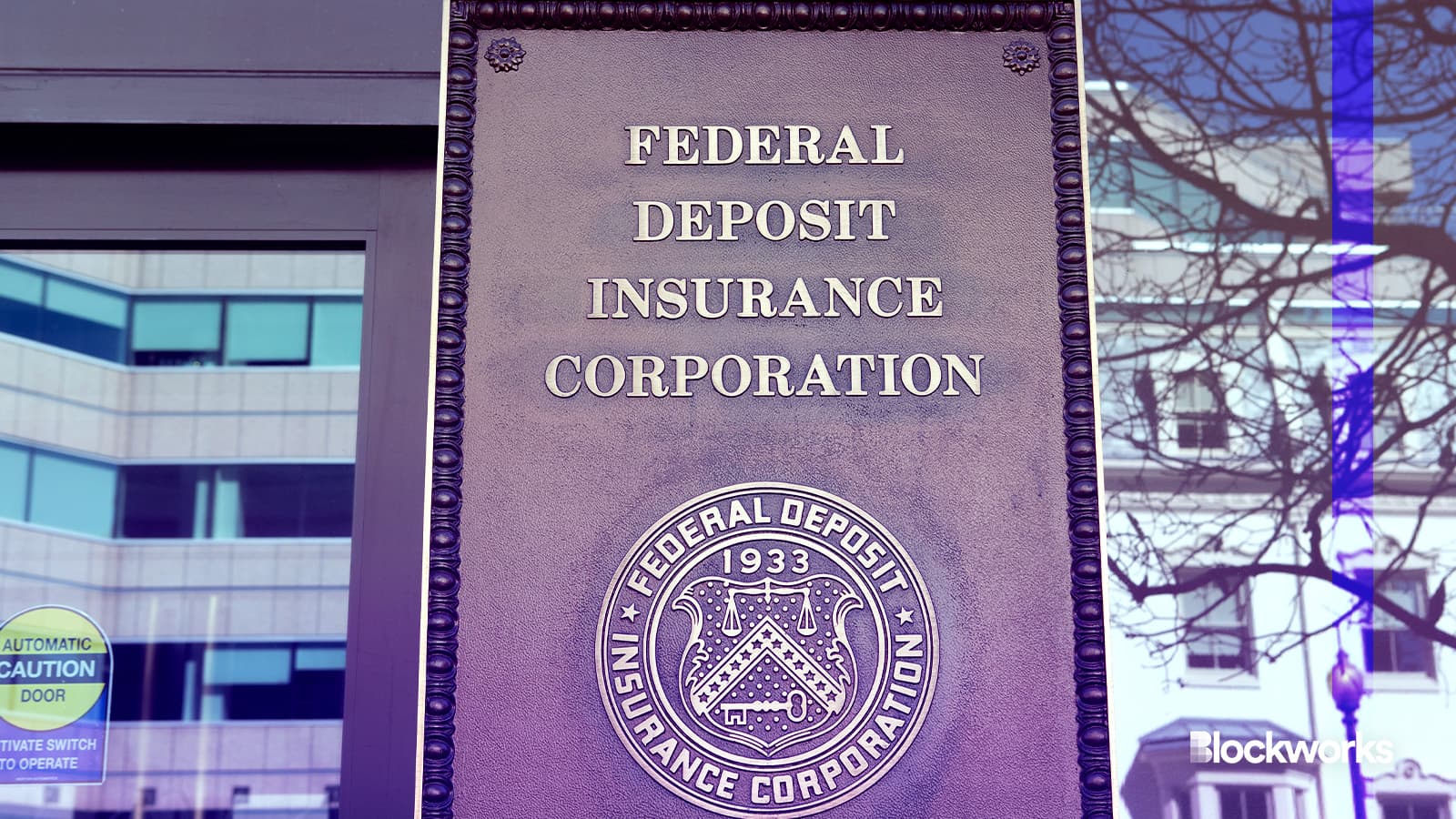FDIC lacks ‘clear procedures’ for crypto-related risks, report says
The Office of the Inspector General made some recommendations to update the FDIC’s approach to crypto activities by supervised institutions

Mark Van Scyoc/Shutterstock modified by Blockworks
The Office of the Inspector General of the Federal Deposit Insurance Corporation released a report on the FDIC’s crypto risk strategies Wednesday.
The Office of the Inspector General made two recommendations to the FDIC, including a process for supervising crypto activities at regulated institutions.
According to a press release, the OIG made the recommendations “based on evidence obtained during [their] evaluation.” It said “the FDIC’s lack of clear procedures causes uncertainty for supervised institutions in determining the appropriate actions to take.”
The OIG recommends that the FDIC needs to assess the potential risks of crypto because, without “effective guidance,” the FDIC or the institutions under its umbrella “may not take appropriate actions to address the most significant risks posed by crypto assets.”
“Specifically, the FDIC has not yet completed a risk assessment to determine whether the Agency can sufficiently address crypto asset-related risks through actions such as issuing guidance to supervised institutions,” the report said.
Further, the OIG warned that a lack of review process could make it seem as though the supervisory body is not being “supportive” of institutions currently engaging or planning to engage with crypto.
The FDIC agreed with the report’s recommendations and “plans to complete corrective actions for these recommendations” by the end of January.
The report also calls out crypto companies making “misrepresentations” about deposits being backed by the FDIC. As an example, it referred to an unnamed crypto company.
“In 2022, a cryptocurrency company filed for bankruptcy. This company had been misrepresenting to its customers for over a year that the funds it held for customers were insured by the FDIC,” the report said.
While there were a number of crypto companies that declared bankruptcy in 2022, the Federal Trade Commission most recently targeted bankrupt lender Voyager for its deceptive claims around FDIC insurance.
The company was allegedly “well aware” that the deposits were not backed by the FDIC, according to a FTC suit.
Additionally, Binance updated its terms of service to say that accounts are “not eligible” for insurance protections after it said — in an email to customers and seen by Blockworks — that it had been given “guidance” by the FDIC.
Get the news in your inbox. Explore Blockworks newsletters:
- The Breakdown: Decoding crypto and the markets. Daily.
- Empire: Crypto news and analysis to start your day.
- Forward Guidance: The intersection of crypto, macro and policy.
- 0xResearch: Alpha directly in your inbox.
- Lightspeed: All things Solana.
- The Drop: Apps, games, memes and more.
- Supply Shock: Bitcoin, bitcoin, bitcoin.





